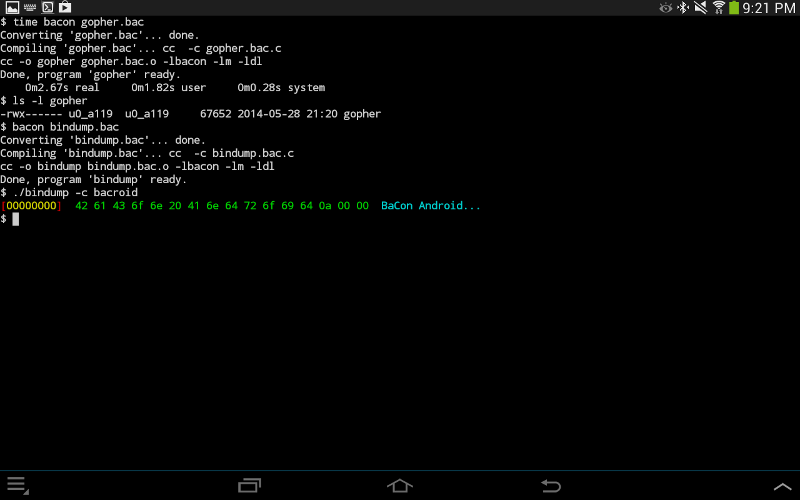I copied the
libbacon.a to my gcc lib directory and
bacon to my xbin. I would recommend using the
C4droid set of gcc, SDL, Qt, ... rather than the console only
TerminalIDE application. C4droid is a much better C / C++ gcc enviornment than the hack job TerminalIDE has done. IMO It's using
4.4.0 gcc and I'm using 4.8.x with C4droid. The major issue I have with Terminal IDE is that I can't use with my blue tooth external keyboard. Terminal IDE displays two characters for every one typed. I see no options in the program to fix this.

